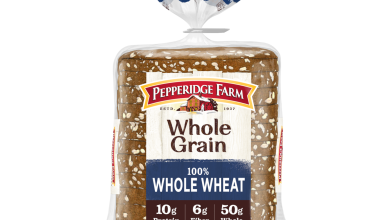Perfectly Poached Whole Eggs: Nutritional Powerhouse for Every Meal
Poached Whole Egg Nutritional Information
Description:
A poached whole egg is a nutritious culinary delight, providing a rich source of protein and essential vitamins. Its delicate cooking method preserves its natural flavors while ensuring a soft, creamy texture.
Nutritional Composition (Per Serving):
| Nutrient | Amount |
|---|---|
| Energy (kcal) | 143.0 |
| Protein (g) | 12.51 |
| Total Fat (g) | 9.47 |
| Saturated Fat (g) | 3.113 |
| Carbohydrates (g) | 0.71 |
| Dietary Fiber (g) | 0.0 |
| Sugars (g) | 0.37 |
| Calcium (mg) | 56.0 |
| Iron (mg) | 1.75 |
| Magnesium (mg) | 12 |
| Phosphorus (mg) | 197.0 |
| Potassium (mg) | 138.0 |
| Sodium (mg) | 297.0 |
| Zinc (mg) | 1.29 |
| Copper (mcg) | 0.072 |
| Manganese (mg) | 0.028 |
| Selenium (mcg) | 30.6 |
| Vitamin C (mg) | 0.0 |
| Thiamin (mg) | 0.032 |
| Riboflavin (mg) | 0.387 |
| Niacin (mg) | 0.063 |
| Vitamin B6 (mg) | 0.144 |
| Folate (mcg) | 35.0 |
| Vitamin B12 (mcg) | 0.71 |
| Vitamin A (mcg) | 160.0 |
| Vitamin E (mg) | 1.04 |
| Vitamin D2 (mcg) | 2.0 |
Allergen Information:
Eggs are a common allergen. Individuals with egg allergies should avoid consuming poached eggs and consider alternative protein sources.
Dietary Preferences:
Poached whole eggs can be included in various dietary lifestyles, including low-carb diets, ketogenic diets, and paleo diets, due to their high protein and low carbohydrate content. They are also suitable for gluten-free diets.
Advice:
To achieve the perfect poached egg, consider using fresh eggs, as they hold their shape better during cooking. A splash of vinegar in the water can also help the egg whites coagulate more quickly, resulting in a beautifully formed poached egg.
Conclusion:
Incorporating poached whole eggs into your meals can enhance not only the flavor but also the nutritional profile of your dishes. With their rich protein content and essential vitamins, they are a versatile ingredient that can complement a variety of cuisines and dietary preferences. Enjoy them as a breakfast staple, a salad topping, or a component of your favorite dishes!








